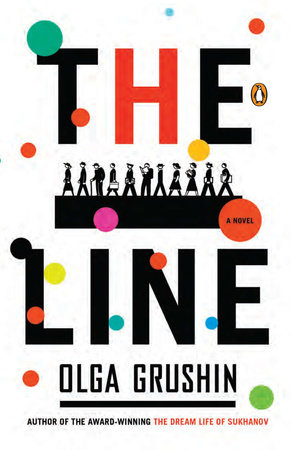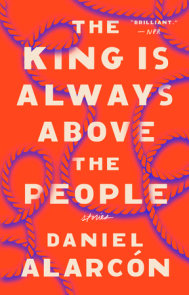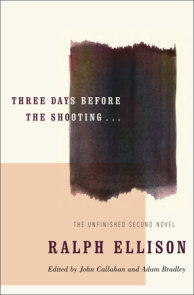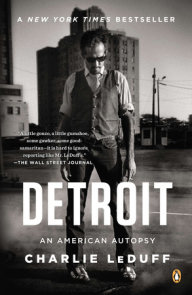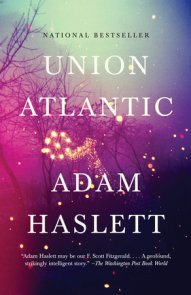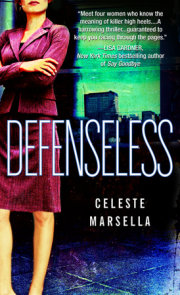READERS GUIDE
Questions and Topics for Discussion
INTRODUCTION
It forms almost spontaneously. At a boarded-up kiosk on a bleak November afternoon in a nameless Russian city, a crowd of people step into line, not even knowing what they are waiting for. Amid the swirling and contradictory rumors, one particular story gains credence: the great composer Igor Fyodorovich Selinsky, long exiled from his native land, will be coming home to conduct a single performance of his new, reputedly brilliant ninth symphony. Though no one knows when the tickets will go on sale, two conditions are clear: tickets will be allocated one to a customer, and one has to be in line when the kiosk opens to receive a ticket.
The prospect of the concert precipitates a crisis in the drab apartment of a family with no last name. The father, Sergei, is a gifted violinist who has been forced by the government to play the tuba instead. He imagines the chance to see the great Selinsky as redemption from a life of aesthetic frustration. His schoolteacher wife, Anna, wants the ticket as a kind of cosmic peace offering to her ancient mother, who has asked to attend the concert for reasons known only to herself. The couple’s teenage son, Alexander, cares little for classical music or, indeed, for anything else. The ticket he most covets is for a train ride as far from home as he can go. Gradually, however, the ticket becomes an object of obsessive desire for everyone in the household, as it comes to represent everything from the recovery of lost love to the hope of a new democratic era. The father, mother, and son all start taking turns holding the place in line, ditching school, risking their jobs, and mortgaging their futures just so they can be there when the kiosk finally opens.
But the family’s apparent cooperation is not all that it seems. As the months draw on, each becomes enmeshed in his or her own web of lies and secrets. Seeking understanding, fulfillment, or simply an escape from the gray monotony of life, Sergei, Anna, and Alexander all seem likely to lose the things they hold most dear, and the precious love and trust that they set at risk seem unlikely to be compensated by an evening of music.
Inspired by real events and narrated with extraordinary verve and passion, The Line is a heartfelt tale of how physical deprivations can spill over into spiritual and emotional hunger. In this, her second outstanding novel, author Olga Grushin deftly explores the extent of human desire and the limits of family loyalty. Herself the daughter of a prominent Soviet sociologist, Grushin reveals in these pages that she, too, knows much about human nature and about life in the former Soviet Union—a place whose people’s hopes, needs, and struggles may strike us as both far away and uncannily similar to our own.
ABOUT OLGA GRUSHIN
The daughter of the famous Soviet sociologist Boris Grushin, Olga Grushin was born in Moscow and spent her early childhood in Prague. After studying art history at Moscow’s Pushkin Museum of Fine Arts and journalism at Moscow State University, she came to the United States and earned a degree at Emory University in Atlanta, Georgia. During her varied and colorful career, she has worked as a research assistant at a Washington law firm, a cocktail waitress in a jazz bar, and an interpreter for former President Jimmy Carter. Her first novel, The Dream Life of Sukhanov, was awarded the 2007 New York Public Library Young Lions Fiction Award and was named a Notable Book of the Year by The New York Times. Ms. Grushin lives near Washington, D.C., with her husband and children.
A CONVERSATION WITH OLGA GRUSHIN
Q. The story of The Line would not exist in the same way in a society where consumer goods were plentiful. Do you think it is possible that there may be some inverse relation between a society’s prosperity and its capacity to generate good stories—that the more readily we can satisfy our needs, the less of interest we have to say?
Every society, no matter how prosperous, will always have its stories, I think, though the stories will, of course, differ from place to place, from time to time, as will their importance in people’s lives. The stories that interest me most tend to be universal. At its heart, The Line is a fable of desire, of hope, of people whose lives have grown meaningless, and of stale longing for something to change, for something to happen. These, I believe, are notions that anyone can relate to, whether in a land of lack or a land of plenty. (One need look no further, for example, than the line for auditions at American Idol.) That said, more dramatic lives, more turbulent historical periods inevitably lend themselves to more dramatic, more complex stories. In times of deprivation, desires will be more urgent; in times of war and repression, people’s actions will carry more weight. This particular story, which is essentially a story of searching for light amid darkness, stands out in brighter contrast against the snowbound gloom of Soviet history than it would against the electric illumination of American prosperity. But I have no doubt that there are other stories, better suited to the light. I hope to tell some of those as well.
Q. Your book is dedicated to your late father, the renowned Boris Grushin. How did your relationship with him influence you as a writer?
In many ways, my father was, and remains, the most important presence in my life. His was never a literary influence; he did write books, but he was a scholar rather than a writer. Yet on the deepest level imaginable, he influenced—formed, really—my approach to work and life in general. I’ve never known anyone as uncompromisingly devoted to his vision, as hard-working or as honorable, and, at the same time, so full of vitality, of energy, of an almost childlike curiosity about so many things. Inevitably, some of my most constant preoccupations as a writer stem from him. He shared with me his love of art and nature. He believed wasting time to be a great sin, and taught me, very early on, to be conscious of the passage of every day, every hour, almost every minute. I have since become interested in the complexities of the interactions between personal and historical time, in our individual perceptions of time, in the many ways in which our present is affected by our past and our future, and I explore all these themes in my work. I have also been drawn to his groundbreaking research into the little-studied sphere of “mass consciousness” (as he termed it) in all its manifestations, from anonymous anecdotes to folk songs. I pay tribute to his work in this novel, where the eponymous line undergoes vacillations and transformations, from a disjointed gathering of hostile individuals to a rumor mill to a Greek chorus to a violent mob to a true community.
And, quite apart from his ideas, my father’s personality was so extraordinary that I’m sure his shadows and reflections will keep finding their way into my writing for years to come, until the day when I finally feel equal to the task of writing about him directly. In The Line, echoes of my father can be heard in two separate characters: the bearded man who organizes the crowd and becomes the line’s natural if nameless leader, and the mysterious old man with piercing eyes who holds the people together in a less tangible way—by giving them hope.
Q. How did the inspiration for The Line come to you?
Usually, I find this question very hard to answer. So often ideas grow in hidden, subconscious ways, feeding on years of experiences, only to spring out fully formed one day, seemingly out of nowhere. This, at any rate, was the case with my first novel and most of my short stories. The Line is an exception: its origin was quite specific. I was at home at my desk, doing research for what I thought would be my second novel, when I happened upon a footnote concerning Igor Stravinsky’s return to Russia in 1962. Of course, I’d heard about it while growing up in Moscow, but this was the first time I saw the story clearly for what it was. Immediately the idea of a year-long line gripped me—it was such an amazing metaphor for hope and the power of art, and it was so fascinating to think about the lives of those who chose to wait in the line and their interactions with one another. Right then and there, I knew I had to set aside the project I was working on and write this book.
Q. Reading The Line brought to mind a variety of authors, including Beckett and Gogol. Whom do you regard as your strongest literary influences?
I grew up reading the Russian greats, and that formed my idea of what true literature could do. Nabokov and Gogol are probably my strongest influences, followed by Chekhov and, to a lesser extent, Bulgakov and Daniil Kharms. Among the Western writers, I’m drawn to the whimsical, the fantastical, the absurd; I would have to name Kafka, Borges, Calvino, Laurence Sterne, Hoffmann, Lewis Carroll, and, especially in the case of The Line, Dino Buzzati.
Q. Classical music seems to matter quite a bit to you—or at least you can sympathize with those for whom it is a passion. What role has classical music played in your life?
Once again, the musical aspects of the book owe much to my father. He was the greatest lover of music I have ever known. He could sing entire operas by heart and always worked with his radio tuned to a classical station. Classical music is the background against which so many of my Moscow memories are set, and it carries an emotional charge for me—especially now that my father is no longer alive. Alexander’s recollection of his father hearing a beloved piece on the radio and immediately bursting out of his room to invite his family to join him to listen, is borrowed from my own childhood. The rest of my family wasn’t nearly as enthusiastic about listening so, in a way, this book became my way of telling my father that, although it didn’t always seem so at the time, I did hear the music he was trying to play for me all through his life, and I thank him for that.
Q. The Line is intentionally vague as to details of place and time. The city where it is set is never named, and your historical moment takes snippets from the Stalin, Khrushchev, and Brezhnev eras. Why so nonspecific?
I decided, very early on, that I did not want to write a historical novel. Instead, I saw my story as a fable, free of time, free of place, a dark fairy tale set in a Russian dreamscape of sorts, to which the reader could hopefully relate without knowing much about Soviet history. Also, I intended the story to encompass a wide range of emotions and historical settings. For my purposes, the original Stravinsky episode was a bit one-dimensional, sounding only a single note of triumph, of hopes fulfilled. These moments are indeed present in the story—I borrowed much from the Soviet 1960s, with their atmosphere of change and rebirth—but I was also interested in adding drama and danger to the very act of standing in line, in introducing notions of courage, betrayal, and loss to the story, and so I turned to earlier, darker, periods in Soviet history, to times of repressions and denunciations.
Neither did I want my composer to be an actual historical figure. Large as Stravinsky is, my Selinsky was envisioned as larger than life, a figure of nearly mythical proportions, a savior, whom everyone in the line could imbue with vastly different qualities that would change as their dreams changed.
Q. Your descriptive prose in The Line is often fantastical and sometimes almost hallucinatory. Why did you opt for this style and how did you consider your readers when crafting your prose?
I strive to speak with my own voice, to accomplish something original. I love the idea of linguistic inventiveness and narrative experimentation. Writing a straightforward, linear story in streamlined prose would never hold my interest as a writer. I am deeply indebted to the two opposing traditions of Russian literature: the realist and the fantastical. I think the stories I’m most interested in telling, at least at this point in my life, are set in the shadowy places between the two; my characters frequently cross over from one to the other, and the style that I’d like to think of as my own involves frequent ventures into dreamlike states of consciousness, transitions between light and darkness. I found this approach well suited to telling my story of human hope. I wanted to contrast the stark drabness of reality with the bright, magical outbursts of my characters’ fantasies, the darkness of history with the brilliance of art.
I do realize that not every book is for everyone. Some will think Hemingway too laconic, others will think Nabokov too rich. I can only hope that my work will find its readers.
Q. The features of your style become perhaps more startling when one realizes that English is your second language. How do you think the fact that you are a non-native speaker influences your authorial voice?
When I write in English, I think in English, but I inevitably introduce Russian literary echoes into my words, as well as a certain intonation that is typically Russian in nature. I think that my straddling of two cultures and two languages has helped me form my style, which is neither purely Russian nor American. And, of course, being a non-native speaker ensures that I never take my language for granted—an essential quality for a writer, I think, and one that I’m lucky to have without trying, by virtue of necessity.
Q. For quite some time at the outset of The Line, you keep the relationships among the main characters unclear. It’s not until several chapters have gone by that we realize they are a family. What was your thinking on that point?
This way of introducing my characters is meant to illustrate their essential isolation at the onset of the story—each exists as a country with closed borders, each perceives the world in a severely limited way, both in terms of emotions and in terms of basic senses (one of which is lacking in each of the main characters), and each sees other people, even those closest to him or to her, as mere labels: “the old man,” “the little boy,” “the woman with bright lipstick,” “my husband,” “my wife.” The points in the story at which labels finally give way to names are not accidental; among other things, they signify the characters drawing closer together, beginning to rediscover one another. The line, of course, serves as the catalyst in the process.
Q. Sometimes in midparagraph the thoughts of one of your characters will dissolve and be supplanted by the consciousness of another. Why did you make use of this rather unusual technique?
This answer is directly related to the one above. I envisioned the line as a system of mirrors: each character is a distinct mirror reflecting his or her own corner of the line from his or her own angle. The picture may be distorted and incomplete at first, yet gradually the reflections begin to merge into a coherent whole. The family at the heart of the story has four members, and there are four separate voices narrating the story. In the beginning of the novel, the boundaries between the voices are very clear, one chapter per voice. As the story progresses, however, these boundaries start to blur, their lives become less isolated, they are forced to form relationships, first with the strangers in the line around them, then, often through the mediation of these strangers, with one another. Eroding the artificial boundaries of separate chapters and, later, separate paragraphs, switching voices in an increasingly fluid fashion, was a way of portraying the family, and the entire line, as moving from isolation and anonymity toward community.
Q. It’s easy to observe the ways in which The Line comments on Soviet Russia. Do you think it is also a less obvious commentary on capitalist America?
When one sets a story in Soviet Russia, it is, of course, impossible to avoid political connotations altogether. However, I was not actually trying to comment on either Russia or America in my novel. The motif of Over There permeates the entire book, and the characters’ land of darkness and deprivation is often contrasted with a land of beauty and plenty. Although geographically these correspond to Russia and the West, my purpose was not to describe specific places but to identify mythological constructs in the minds of my characters: their “Over There” is an idealized fantasy of a place where the grass is green, as dreamed by someone in a wintry desert. In reality, people “Over There” may no longer be capable of noticing the grass; compare, for instance, Sergei’s romantic childhood memory of “Westernized” Christmas (“soft, deep enchantment” in a “wondrous, promise-filled world”) and the reaction of a well-heeled foreign diplomat looking at actual Christmas decorations (“trite symbols” that “bored him”), or Maya’s magical “city of lights” and the foreigner’s prosaic city of servile shopkeepers, chauffeurs, and expensive hotels. These, however, are reflections on the profound difference between having and wanting, possessing and remembering, rather than political or economic commentary per se.
Q. In The Line, a thing of beauty—a timeless piece of music—nearly becomes a commodity sought after by your characters and subsequently drives them to commit many wrongful acts. In what ways do you see The Line as a commentary on the relationship between the material and the ideal?
It is certainly true that, apart from Sergei, none of my characters wants to hear the music for music’s sake. Art becomes a means to something else—a ticket to a better place or a higher emotion. And, indeed, those standing in the line commit numerous transgressions in pursuit of their goals—they lie, steal, and betray one another. On the other hand, none of them has a material motive: they dream about adventure, love, happiness, and other more or less ephemeral things. And, in the end, art is not commoditized. In some sense, it fulfills its most sacred function—to transport and transform—even though the concert never takes place. Ultimately, the contrast I meant to explore was not so much that between the material and the ideal but rather that between one’s base, sordid reality and one’s longing for something beautiful and true.
Q. What would you be prepared to wait in line for?
A new novel by Nabokov. An exhibit by Bosch or Chagall. A plane ticket to Greece. And, of course—in the longest line of all—medicine for my children.
Q. You are working on a third novel now. Any previews?
Unlike many writers, I have few superstitions about my work. I don’t have to write the first sentence with a favorite pen or the last in a favorite armchair, nor spend the interim listening to a particular piece of music or wearing a particular sweater. I do have one superstition, however: I believe that an unfinished work has its own energy, which will dissipate quickly if one talks about it before its time. All I will say at this point is that my next book will be a departure both in its setting and its narrative technique.
DISCUSSION QUESTIONS







